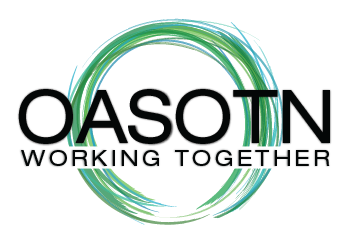By: Kelly Crane, LCSW
OASOTN representative on the SOTB
The Oregon Sex Offender Treatment Board (SOTB) was established under the administration of the Oregon Health Authority (OHA). The original intent of the Board was to regulate providers who provide treatment for sexual offenders (adults and juveniles) and to establish guidelines and protocols around best practice in the treatment of sexual offenders. The main goal is to provide consumer protection. It established a Title Act, meaning anyone in the state of Oregon who wishes to identify as a sex offender therapist must be certified through the SOTB. The original set up established two tiers of providers: Certified Clinical Sex Offender Therapist and Associate Sex Offender Therapist based on education, licensure and experience. It also allowed for some clinicians to be “grandfathered in”, mainly those who were not licensed within their field.
This past legislative session a group of individuals submitted a bill to the Oregon legislature with the intent to change the Title Act to a Practice Act, namely requiring anyone in the state of Oregon who treats sexual offenders to be certified through the SOTB. The original intention was to also do away with the grandfather clause, basically requiring that all providers be licensed within their scope of practice. The bill, House Bill 2633, was submitted as an emergency bill to amend current laws and declaring an emergency to insure consumer protection. This bill passed and was signed into law with an effective date of Jan. 1 2018.
As most bills that go through the legislative process, HB 2633 went through several changes and did not completely meet its original intent of becoming a practice act. It does allow for someone to provide sex abuse specific treatment if the provision of sex abuse specific treatment is within their scope of practice. It did however make changes to the certification of those who can identify themselves as sex offender therapist adding a third tier of providers to address rural areas of the state where providers may not be able to meet the number of clinical hours with sexual offenders needed for the other two certifications. This new tier was named “Certified secondary associate sex offender therapist”. The group that brought this to the legislature as well as the OASOTN Board and the SOTB board have questioned the title as the qualifications would indicate that a more reflective title would be “Certified secondary clinical therapist”. The only avenue for correcting this is legislative and there are talks that it will be addressed in the 2018 legislative session.
The bill also more broadly defines ‘sexual abuse’ to include non- adjudicated or convicted individuals, thus attempting to capture those seeking services without or prior to legal involvement. The bill also redefines some of the administrative duties of the SOTB. Another big issue about the bill is that it questions why the OHA, DOJ and OYA are allowed to exempt employees who practice sex offense specific treatment to not be certified and to submit reports regarding complaints made against employees practicing sex abuse specific treatment, as well as the steps that would be needed to certify said employees to the interim committees of the Legislative Assembly by Dec. 31, 2018. To review the final bill please go to: https://olis.leg.state.or.us/liz/2017R1/Downloads/MeasureDocument/HB2633
The SOTB is currently amending its rules to reflect this new legislation. A subcommittee reviewed suggested changes made by OHA staff and then those suggestions were taken to the Board who amended and/or approved the suggestions. Those suggested rule changes will be on the SOTB web site sometime in November for public comment before being finalized in December by the Board. Please go to the website (http://www.oregon.gov/OHA/PH/HLO/Pages/Board-Sex-Offender-Treatment.aspx) to review those changes and/or make comments prior to the Boards’ next meeting on Dec. 1st. The Board is also going to be reviewing changes to the applications for the three certifications so if you have concerns or suggestions for that please let your SOTB board representative know.
This spring the SOTB will be forming a subcommittee to review the SOTB’s guidelines for the treatment of juvenile offenders that currently exist and the suggestions that recently were published by ATSA. The issue regarding the use of polygraphs with juveniles will also be taken up with suggestions for how to best regulate the use of polygraphs or recommendations to no longer use them routinely. There is also talk within the SOTB of making a distinction between certificate holders who treat adults from those who treat juveniles. Presumably this subcommittee would address this concern and if a recommendation is reached to make such a distinction it would have to be done legislatively.
There is a lot happening in our field in regard to regulations and best practice guidelines. Please let your voice be heard. Your OASOTN representatives on the SOTB can be reached:
Scott Brown, LCSW, Clinical Manager
Scott.Brown@morrisonkids.org (503) 258-4642
S. Kelly Crane, LCSW, Certified Clinical Sex Offender Therapist at the Sage House, Eugene
Kcrane3@peoplepc.com 541-357-4327
